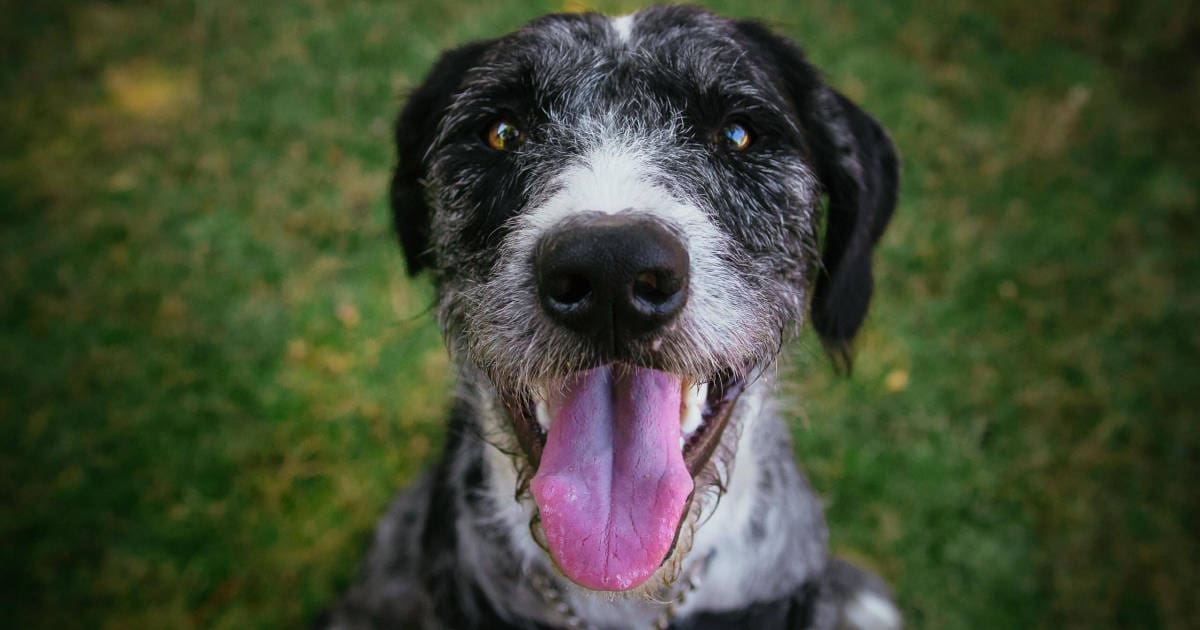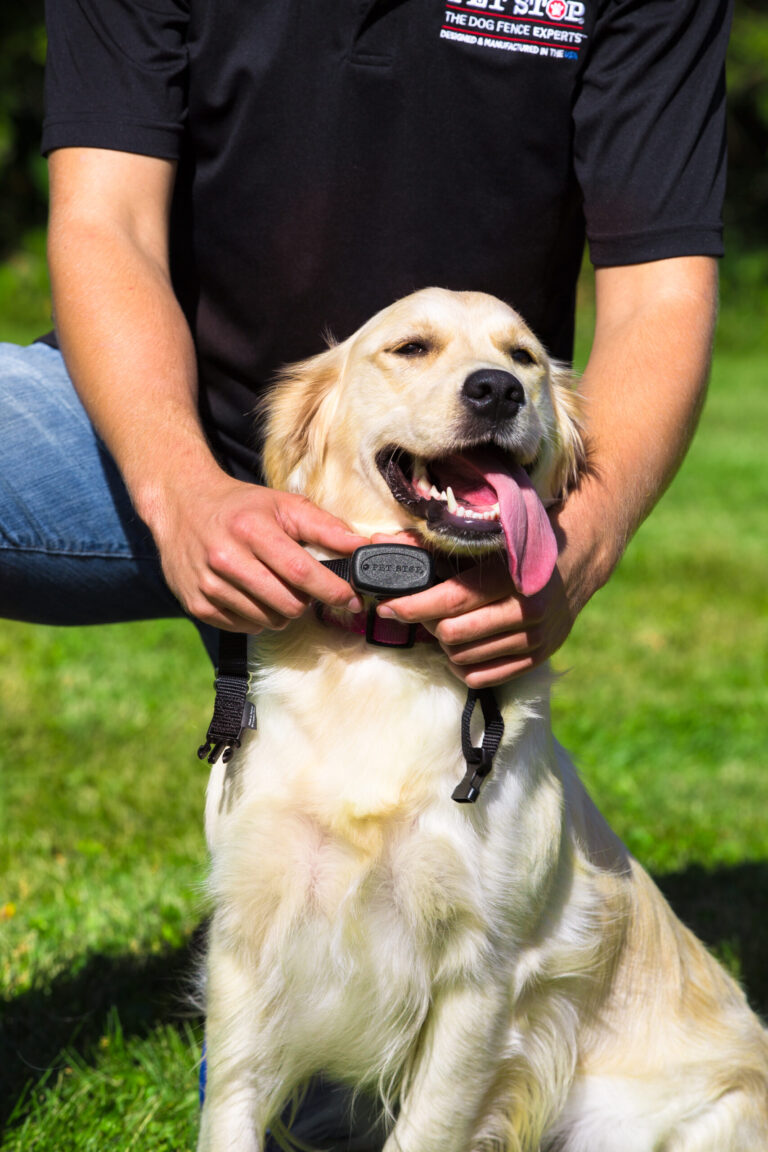If your dog keeps panting and won’t settle at night, it may be experiencing discomfort or anxiety. Make sure the sleeping environment is comfortable, with good ventilation and a cool temperature.
Provide a cozy bed and try calming techniques such as soothing music, aromatherapy, or a comforting blanket. If the panting persists or worsens, it may be best to consult with a veterinarian for further evaluation and guidance.

Credit: www.holistapet.com
Understanding Panting And Restlessness In Dogs
Panting and restlessness in dogs can be concerning for pet owners, especially when it occurs at night. Dogs pant to regulate their body temperature, but excessive panting and restlessness may indicate an underlying issue that needs attention. In this article, we will explore the causes of excessive panting at night, common reasons for restlessness in dogs at night, and the significance of panting and restlessness in dogs.
Causes Of Excessive Panting At Night
Excessive panting at night in dogs can be triggered by various factors. It is essential to understand these causes to identify the root cause and address it accordingly. Some common causes of excessive panting at night include:
- Pain or discomfort from injuries or underlying health conditions
- Anxiety or stress
- High nighttime temperatures
- Allergies
- Metabolic disorders
- Heart disease
Common Reasons For Restlessness In Dogs At Night
Restlessness in dogs at night can be attributed to several factors. Understanding these reasons can help pet owners alleviate their dog’s discomfort and provide appropriate care. Some common reasons for restlessness in dogs at night include:
- Pain or discomfort from injuries or underlying health conditions
- Anxiety or fear
- Inadequate exercise or mental stimulation during the day
- Needing to go to the bathroom
- Separation anxiety
Significance Of Panting And Restlessness In Dogs
Panting and restlessness in dogs should not be ignored, as they can indicate underlying health issues or emotional distress. These signs serve as an important communication tool for dogs, and understanding their significance is crucial for providing proper care. Some possible implications of panting and restlessness in dogs include:
| Panting | Restlessness |
|---|---|
| Regulating body temperature | Discomfort or pain |
| Anxiety or stress | Need for physical or mental stimulation |
| Underlying health conditions | Separation anxiety |
It is important to observe your dog’s behavior and consult with your veterinarian if you notice prolonged or severe panting and restlessness to ensure their well-being.
:strip_icc()/Why-dogs-whine-4147056-v2-6fe95282387b4256bbc38b04dfa72a88.png)
Credit: www.thesprucepets.com
How To Address Panting And Restlessness In Dogs At Night
Is your dog panting and unable to settle down at night? Dogs may pant for various reasons, including heat, anxiety, pain, or discomfort. Addressing this issue is crucial to ensure your dog gets a restful night’s sleep. In this section, we will explore some effective strategies to help calm your dog and create a comfortable sleeping environment.
Creating A Comfortable Sleeping Environment
A comfortable sleeping environment can make a significant difference in helping your dog settle at night. Consider the following tips:
- Good Ventilation: Ensure the sleeping area has proper ventilation to keep your dog cool and prevent overheating.
- Cool Temperature: Maintain a cool temperature in the room or use a fan to circulate air.
- Cozy Bed: Provide a comfortable bed with adequate support for your dog’s joints and muscles.
Calming Techniques For Dogs
Implementing calming techniques can help relax your dog’s mind and body. Try the following methods:
- Soothing Music: Play soft and calming music to create a serene atmosphere for your dog.
- Aromatherapy: Use lavender or chamomile scents, known for their relaxing properties, to create a soothing environment.
- Comforting Blanket: Provide a special blanket or wrap around your dog to make them feel secure and supported.
When To Consult A Vet
If your dog’s panting and restlessness persist despite your efforts, it may be necessary to consult a veterinarian. Some situations when you should seek veterinary advice include:
- When the panting and restlessness are sudden and unusual for your dog
- If your dog exhibits signs of pain or discomfort
- If your dog is panting excessively and showing other worrying symptoms
Remember, it’s important to address your dog’s panting and restlessness to ensure their well-being and facilitate a good night’s sleep. By creating a comfortable sleeping environment and using calming techniques, you can help your dog settle down at night. If the issue persists, don’t hesitate to consult a vet for further evaluation and guidance.
Preventing Panting And Restlessness In Dogs At Night
Is your dog experiencing panting and restlessness at night? Create a comfortable sleeping environment with good ventilation and a cool temperature. Use calming techniques such as soothing music or a comforting blanket to help your dog settle down.
Recognizing And Addressing Stress And Anxiety In Dogs
Dogs, just like humans, can experience stress and anxiety, which can contribute to panting and restlessness at night. It’s essential to recognize the signs of stress and anxiety in your canine companion and address them promptly. Some common signs include:
- Pacing
- Excessive panting
- Trembling
- Whining or whimpering
- Destructive behavior
If you notice any of these signs, take steps to reduce your dog’s stress and anxiety levels. Provide a calm and quiet environment, free from loud noises or sudden disruptions. Offer reassurance by petting and speaking softly to your dog.
Managing Environmental Factors
The environment in which your dog sleeps can significantly impact their comfort and ability to settle down at night. Consider the following factors:
| Factors to Consider | Actions to Take |
|---|---|
| Temperature | Ensure the sleeping area has proper ventilation and maintain a cool temperature. This can help prevent overheating and excessive panting. |
| Noise | Create a quiet and peaceful sleeping environment for your dog. Use earplugs or white noise machines to block out loud sounds that may cause anxiety. |
| Lighting | Keep the sleeping area dimly lit or use blackout curtains to promote a restful sleep for your dog. Avoid bright lights or glowing screens that may disturb their sleep. |
| Bedding | Provide a cozy and comfortable bed for your dog to sleep on. Ensure it is the right size and made from materials that offer adequate support and insulation. |
Promoting Overall Health And Well-being
A healthy and well-balanced lifestyle can contribute to your dog’s ability to settle down and rest at night. Take the following steps to promote their overall health:
- Regular Exercise: Engaging your dog in daily physical activities can help tire them out and reduce restlessness at night.
- Proper Nutrition: Feed your dog a well-balanced diet that meets their nutritional needs. Consult with your veterinarian for dietary recommendations.
- Regular Veterinary Check-ups: Schedule regular check-ups to ensure your dog’s health is in good condition and address any underlying issues that may contribute to panting and restlessness.
- Calming Techniques: Explore different calming techniques such as soothing music, aromatherapy, or a comforting blanket to help relax your dog before bedtime.
By addressing stress and anxiety, managing environmental factors, and promoting overall health and well-being, you can help prevent panting and restlessness in your dog at night. Remember, always consult with your veterinarian if you have concerns or questions about your dog’s behavior.

Credit: toegrips.com
Frequently Asked Questions Of My Dog Keeps Panting And Won’t Settle At Night
How Do You Calm A Dog From Panting At Night?
To calm a dog from panting at night, create a comfortable sleeping environment with good ventilation and a cool temperature. Provide a cozy bed and use calming techniques like soothing music, aromatherapy, or a comforting blanket.
Why Is My Dog Pacing And Panting At Night All Of A Sudden?
If your dog is suddenly pacing and panting at night, it could be due to environmental factors or pain. High nighttime temperatures can be difficult for puppies and senior dogs. Dogs with untreated allergies may also have disrupted sleep. Additionally, dogs experiencing pain or discomfort from an injury or condition like arthritis may exhibit these behaviors.
Make sure to create a comfortable sleeping environment for your dog with good ventilation and a cool temperature.
What Does It Mean When A Dog Is Restless And Panting?
When a dog is restless and panting, it could mean they are hot, sick, or anxious. Help them feel secure and cool down the area if they’re hot. If the panting is sudden and they’re not feeling well, contact your vet.
Why Was My Dog Panting All Night?
If your dog was panting all night without an obvious temperature-related cause, there could be three common reasons: pain, anxiety, or disease. It’s important to monitor your dog and consult a vet if the behavior persists.
Conclusion
To help calm a dog that keeps panting and won’t settle at night, it is important to create a comfortable sleeping environment. This includes providing good ventilation and a cool temperature. Additionally, using soothing techniques such as playing calming music, using aromatherapy, or providing a comforting blanket can also help.
It is essential to address any underlying issues that may be causing the restlessness, such as pain or anxiety. Consulting with a veterinarian can provide further guidance and assistance in finding a solution.



